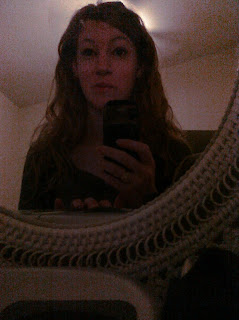A synopsis of my 2 month rotation of Internal Medicine:
I enjoyed most of Internal Medicine. I loved admitting an acutely ill patient, asking them questions, getting to reassure them, then actually making them feel better. It's amazing what a diuretic pill can do for someone. Or a thoracentesis. Or just having a hand to hold when they get a hard diagnosis.
I also enjoyed working with a team: getting to see how each person handles a variety of situations from sleep deprivation, to caring for "difficult" patients, to devastating diagnoses. I learned valuable lessons from my attending physicians, residents, interns, and even other students. I learned that sometimes, to get something done, an attending has to clip someone's finger nails. I learned that it is possible to work for 30 straight hours and still have energy to work hard. I learned how to study when I really had no energy to. I learned fun mnemonics and ways to remember clinical information. And I learned the occasional, random but helpful, fact.
One of my favorite parts of this rotation was sticking a needle into someone's stomach and taking out 10 liters of fluid. I also loved being the sole advocate for a "difficult" patient, Mr. C, who spent 3 weeks on our service. He had an anoxic brain injury and no caregiver could be found, so we started the process of applying for state guardianship. I helped coordinate that process, helped fight for him to be treated better by the nursing staff, and helped fight for better control of his glucose.
Working at a major medical center, we had so many resources at our fingers, and yet, sometimes we still didn't have what we needed to care for our patients. We had the ability to get everyone physical therapy, but we had a hard time getting people who didn't qualify for dialysis off of "compassionate dialysis" and we had a hard time fighting for the rights of some of our patients who had no one else to speak for them.
After being on internal medicine for about a month, I saw a few patients I had seen before, and it was fun to have credibility with them, and with my interns as a capable note writer!
I learned so much from this rotation. I feel like I can talk more like a doctor now! I learned reference ranges on most lab values, I learned typical drugs ordered for inpatients, and how to pull Evidence Based Medicine (EBM) into patient care. My first month we had a librarian that would round with us twice a week and look up articles about patient care issues we talked about and then send our team the articles. It helped us to make better clinical decisions and it showed me how using EBM can benefit patients.
I got to practice my Spanish, and by the end of the rotation I was able to talk with patients and help my team translate a quick message or a full H&P.
I also learned that I CAN work 30 hours in a row and survive (just barely). And I'm so thankful that I will never have to again!!























